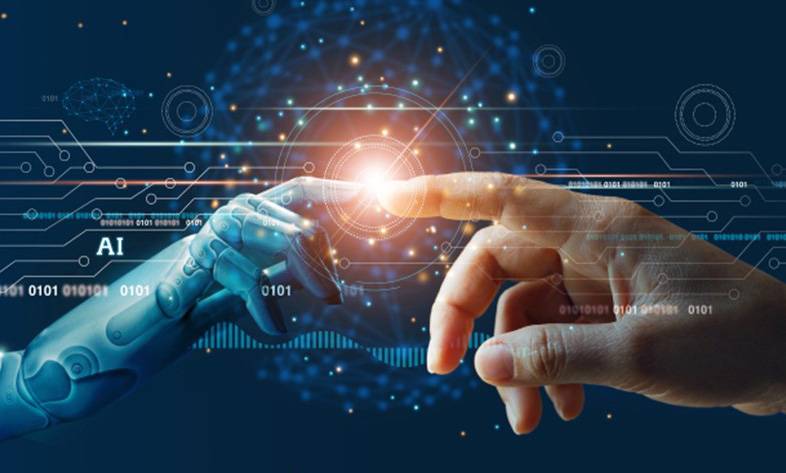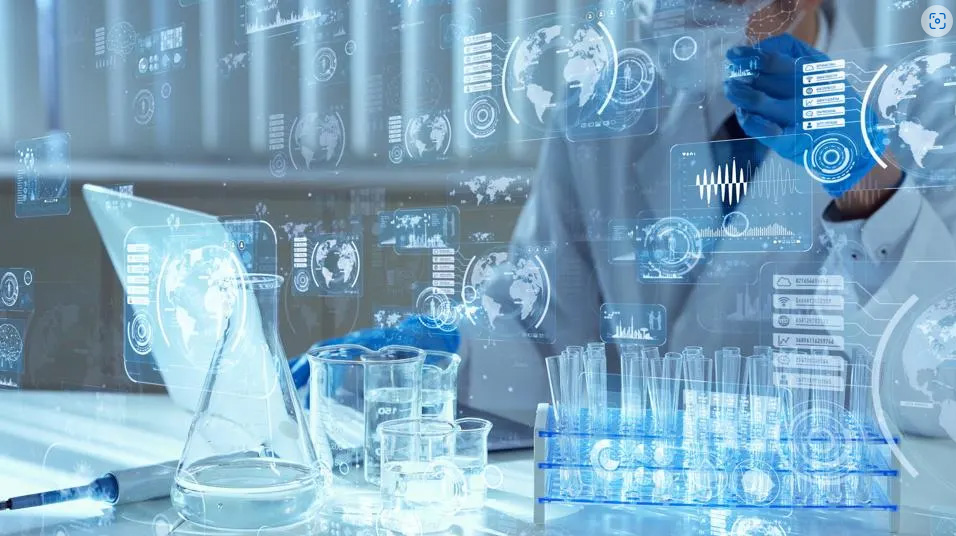How does an AI "make decisions"? A deep look at machine learning models
How AI Makes Decisions: A comprehensive and engaging look at machine learning models and how they work in the real world for the general public.

Investigating the effects of artificial intelligence in the next 10 years along with Itroz.
Artificial intelligence is one of the most advanced and widely used technologies in today's world, which has a significant impact on employment and the labor market. Investigating the effects of artificial intelligence in the next 10 years along with Itroz.
With the ever-increasing advancement of this technology, it is expected that significant changes will be made in the labor market in the next 10 years.
One of the important effects of artificial intelligence on employment is the loss of regular jobs and the creation of new jobs.
Due to the infinite capabilities of artificial intelligence in performing repetitive and mechanical tasks, many routine and repetitive jobs are performed automatically by artificial intelligence systems.
This issue can lead to the loss of jobs for many people, but at the same time, it is also possible to create new job opportunities in areas such as the development and maintenance of artificial intelligence systems, complex data analysis, and the design of artificial intelligence algorithms.
Also, artificial intelligence can help improve working conditions and increase productivity in various industries.
By using artificial intelligence systems to predict market needs and optimize production processes, companies can significantly improve their performance, and this can lead to increased employment and the creation of new job opportunities.
In general, artificial intelligence has a significant impact on employment and the labor market, and with the increasing development of this technology, it is expected that there will be big changes in this field in the next 10 years.
On the one hand, the loss of regular jobs and the creation of new jobs, and on the other hand, improving working conditions and increasing productivity, are among the effects that artificial intelligence will have on employment and the labor market.
Artificial intelligence is one of the most advanced and widely used technologies in today's world, which has dramatically affected our lives.
From self-driving cars to content recommendation systems in social networks, artificial intelligence is present everywhere and has given a new color to our lives.
One of the advanced technologies currently used in artificial intelligence is deep neural networks.
These networks are inspired by a structure similar to that of the human brain, allowing them to recognize patterns and complex information and be used for predictions and intelligent decision making.
Another advanced technology that will be used in the future of artificial intelligence is reinforcement learning.
This method allows machines to learn from their experiences and use them to improve their performance.
This approach allows machines to learn new skills automatically and without the need for human intervention.
In the future, artificial intelligence will be used more widely in various industries.
From medicine to transportation, AI will help us improve work processes and achieve greater speed and efficiency.
In short, the advanced technologies used in artificial intelligence have changed our lives and in the future these technologies will help us achieve a better and more dynamic life.

Artificial intelligence (AI) is rapidly developing and improving, and since this technology is widely used in various fields, the ethical and legal issues related to it have also become significantly important.
One of the important ethical issues related to artificial intelligence is privacy and data security.
Considering that artificial intelligence systems are able to collect and analyze large data, people's sensitive information may be at risk.
Therefore, it is necessary to set strong standards to protect privacy and data security.
Also, another ethical issue related to artificial intelligence is ethical decision-making by artificial intelligence systems.
For example, if an artificial intelligence system decides that a person is not suitable for a particular job, is this decision fully ethical?
In terms of legal issues, one of the main challenges related to artificial intelligence is the issue of legal liability.
If an artificial intelligence system makes a mistake and harms an individual or a large organization, who is responsible? Should developers, manufacturers or users take responsibility for these errors?
In general, artificial intelligence has led to new ethical and legal challenges that require careful consideration and appropriate solutions.
To avoid the unpredictability of these issues, it is necessary to update and revise the standards and laws related to artificial intelligence.
Artificial intelligence is one of the advanced and growing technologies that is changing and transforming various economic industries.
From the automotive and transportation industries to healthcare, artificial intelligence is everywhere and will have significant impacts on the future of these industries.
One of the industries that artificial intelligence will significantly affect is the automotive industry.
By using artificial intelligence algorithms, car companies are able to make significant improvements in the areas of safety, autonomous driving and fuel efficiency.
Also, artificial intelligence can play an important role in improving production processes and reducing costs.
In the field of healthcare, artificial intelligence will also have significant effects.
From diagnosing diseases to predicting treatment outcomes, AI can help doctors make better decisions and speed up patient recovery.
In addition, artificial intelligence will also have significant effects in service industries.
From banking and tax to customer service, AI can make significant improvements in service delivery and improve the customer experience.
According to these developments, it is clear that artificial intelligence will be one of the key factors of change and transformation in various economic industries in the next 10 years.
Therefore, companies and organizations need to adopt and exploit this leading technology in order to remain competitive and conquer new markets.
Data security and protection are very important in artificial intelligence systems, and with the advancement of this technology, the need for effective solutions to protect sensitive and confidential information increases.
One of the main challenges in the field of data security in artificial intelligence systems is maintaining privacy and preventing unauthorized access to information.
Considering that artificial intelligence systems continuously collect, analyze and process data, the possibility of intrusion and unauthorized access to this data also increases.
Therefore, developing strong methods for data encryption and creating advanced security systems is of great importance.
In addition, with the advancement of artificial intelligence technology, cyber attacks are also becoming more sophisticated and advanced.
Therefore, the development of artificial intelligence algorithms and systems is necessary to detect and prevent cyber attacks.
For example, using neural networks to detect attack patterns and create automated systems to counter them can dramatically improve data security.
Finally, considering the importance of security and data protection in artificial intelligence systems, it is necessary for developers and researchers in this field to continuously focus on improving security methods and solutions.
Only by creating strong and advanced security systems, the unique potential of artificial intelligence can be exploited and used effectively.
Source » Itroz Academy

Read a complete and SEO-optimized article analyzing Sam Altman's statement and exploring the future of search.

Instagram uses artificial intelligence (AI) and machine learning (ML) to manage different parts of its platform.

If you want to start programming language recently, we will introduce you three of the best.

The behavior of online consumers from the point of view of digital marketing can be investigated in different ways and tools.
Comments (0)